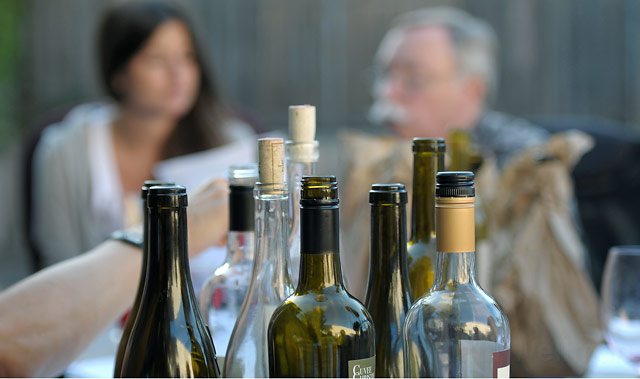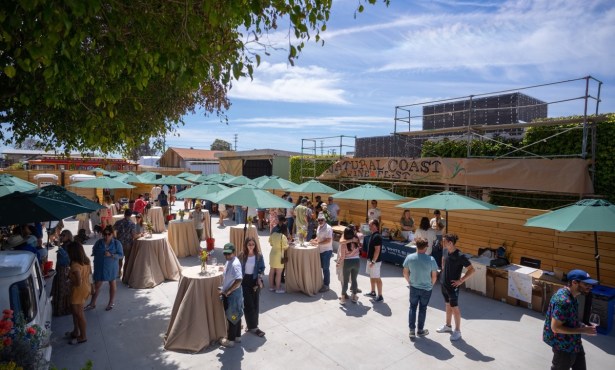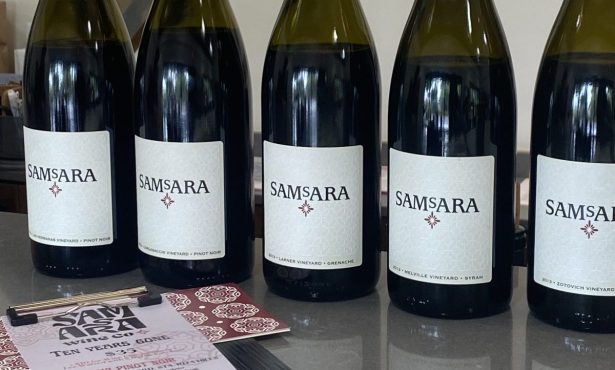Wine Tasting 101
How to Properly and Politely Enjoy Your Imbibing Experience

Most of us learn how to behave in restaurants, airports, and dozens of other public spaces at such a young age that, by the time we’re grown up, we know how to properly patronize them on autopilot. Wine tasting rooms, on the other hand, most must approach with ambivalence and uncertainty, without parental guidance or a clue to social protocol.
What’s more, where cluelessness marries intoxication, excruciating awkwardness emerges. Hopefully the following tasting room crash course will help keep your wine tasting experience as smooth as that world-class Sauvignon Blanc you’ll be sipping.
1. Know the history and purpose of tasting rooms:
They are vessels to sell you bottles of wine, not party venues.
Once upon a time tasting was free, the same way test driving a vehicle at a car dealership is free. Tasting wine has since become a social pastime of sorts, rather than a mere wine-buying excursion. As a result, tasting rooms now charge a fee (usually $10-$20) to pour a list of wines they’ve selected for you to avoid losing money. If people started taking weekend trips to go joyriding at car dealership strips, dealers would likely instate fuel and mileage fees, too.
2. Tasting rooms are not wines bars:
Do not ask for a glass of wine unless the tasting room overtly offers it, which means it has acquired the same special licenses that bars possess in order to serve alcohol-by-the-glass. Rudeness aside, most tasting rooms cannot legally pour glasses of wine anyway.
Likewise, don’t give the pourer trouble about tasting an unopened wine not listed on the flight. Opening a bottle of wine is expensive, and if there aren’t going to be a couple dozen of other people after you that day, the wine will go to waste.
3. Learn to spit:
Getting a buzz is part of the fun, but tasting at several wineries will inevitably take you from dapper to disheveled no matter how well you “hold your booze.” And while spitting may seem utterly counterintuitive while attempting to demonstrate personal classiness and respect for the wine, you’ll accomplish both in doing so. Imbibing every drop will prevent you from truly tasting the subtleties in the wine. After all, the best way to learn about wine is not by drinking it but by spitting it.
Likewise, you’ll probably become an unpleasant patron for the sober pourers who suddenly find themselves going from tasting room associate to bartender (without the great tips).
4. Sacrifice beauty:
More specifically, ditch the cologne and lipstick when you go taste. Remember that everyone is more interested in smelling the wine than in smelling you. And not everyone agrees on perfume preferences — both in type and amount — so leave your “Sex Panther” at home and slap on some unscented deodorant, just to be safe.
Also, lipstick refuses to come off of wine glasses. In fact, every time a woman embraces her natural lip color on a wine tasting jaunt, several tasting rooms gain five extra minutes of time they can spend pouring wine for you in lieu of trying to scrub lip marks off the edge of your used glass.
5. If in doubt, make a reservation:
Some tasting rooms could comfortably accommodate a herd of elephants (drinking alcohol, no less) with a ready and able staff, but others are more like walk-in closets. Either way, groups of more than four tasters are polite — and sometimes even required — to call ahead of time.
Above all, though, taste safely and responsibly. Despite wine tasting being a much more socially accepted manner of day drinking then, say, knocking a few back at a dive bar in the afternoon, it’s still drinking. Designate a driver or try out one of the many local wine tour companies Santa Barbara has to offer.
That said, Santa Barbara County has dozens of world-class, diverse wineries that offer unique tasting experiences — from sipping syrah surrounded by bucolic rolling hills, lined with vines and spotted with centennial oak trees, to sampling sangiovese in an old house within a nostalgic countryside town.
And with the wine industry such a major slice of the Santa Barbara economy’s pie, locals have even more reason to check out their city’s backyard. Polite tasters will undoubtedly optimize their experience, reap the most knowledge, and return home safely and happily.



